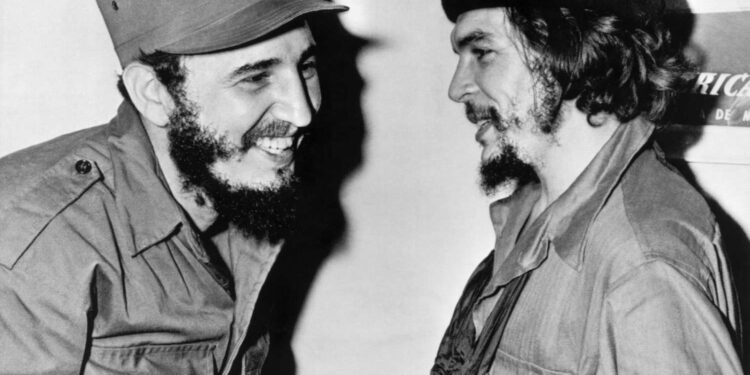Fidel Castro (1926-2016) was a revolutionary leader who shaped Cuban history as its prime minister and president for nearly five decades. Rising to power through a guerrilla campaign that overthrew dictator Fulgencio Batista in 1959, Castro transformed Cuba into the first communist state in the Western Hemisphere.
Born to a wealthy sugar plantation owner, Castro studied law at the University of Havana, where he became involved in leftist politics. After a failed attack on the Moncada Barracks in 1953, he was imprisoned but later released under an amnesty. He then went into exile in Mexico, where he organized the 26th of July Movement with his brother Raúl Castro and Che Guevara.
Upon seizing power, Castro implemented radical reforms, nationalizing private industry and collectivizing agriculture. His alignment with the Soviet Union and embrace of communism led to a severe deterioration in relations with the United States, culminating in the failed Bay of Pigs invasion in 1961 and the Cuban Missile Crisis in 1962, which brought the world to the brink of nuclear war.
Under Castro’s leadership, Cuba achieved notable improvements in healthcare and education, with literacy rates rising dramatically and infant mortality rates falling to levels comparable to developed nations. However, these achievements came at the cost of political freedoms, with opponents facing imprisonment, exile, or execution. The one-party state maintained strict control over media, assembly, and expression.
Castro’s Cuba withstood decades of U.S. economic embargo and survived the collapse of its main ally, the Soviet Union, in 1991. The loss of Soviet support triggered a severe economic crisis known as the “Special Period,” marked by extreme hardship for the Cuban people. Despite these challenges, Castro maintained his grip on power and his defiance of U.S. influence in the region.
In 2006, due to health issues, Castro temporarily transferred power to his brother Raúl, making the arrangement permanent in 2008. Even after stepping down, he continued to write influential “Reflections” columns in state media and remained a symbolic figure of anti-imperialism and leftist resistance globally.
Castro’s legacy remains deeply controversial. To supporters, he was a champion of social justice who stood up to U.S. imperialism and brought education and healthcare to the masses. To critics, he was an authoritarian dictator who suppressed basic freedoms and drove his country into economic ruin. His death in 2016 sparked celebrations among Cuban exiles in Miami while leaving many Cubans mourning the loss of their revolutionary leader.
newshub




Recent Comments